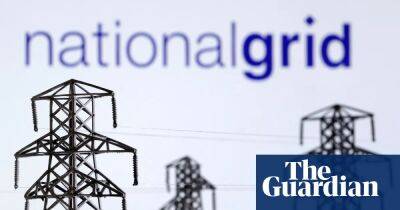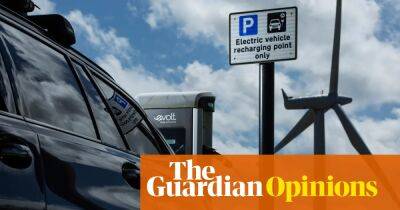Battery passports: how a meeting at Davos helped set a car industry standard
“I t’s incredibly exciting,” said Benedikt Sobotka, the chief executive of mining company Eurasian Resources Group (ERG). Sitting in front of an audience in January at Davos, the ski resort that hosts an annual gathering of the world’s business elite, he waved a piece of paper with a QR code that he hopes will eventually be attached to every electric car battery in the world.
Sobotka’s excitement reflected his involvement in setting up ReSource, a joint project with fellow miners Glencore and IXM to provide battery “passports” for electric cars. It also hinted at his bigger hopes: that his mining company and its partners could take an influential role in the future of the automotive industry.
The rush to create battery passports has a regulatory imperative: the EU has mandated that every new battery more than 2kWh in size (a smallish electric car battery is about 40kWh) must have its own passport by 2027, containing details of its origins and environmental footprint. People working in the mining industry say that it could also have benefits for ERG, a miner with operations in Kazakhstan and the Democratic Republic of Congo, that has spent years trying to shake off past controversies associated with its subsidiary, Eurasian Natural Resource Corporation (ENRC).
ENRC was founded in 1994 during post-Soviet privatisations by three oligarchs – Kyrgyz-born Alexander Machkevitch, Uzbekistan-born Patokh Chodiev and Kazakh-born Alijan Ibragimov. The oligarchs also control the majority of ERG (although Ibragimov died in 2021 and was replaced by his son Shukhrat).
Through ENRC, the oligarchs built up a huge empire mining metals centred on their operations in Kazakhstan. By 2006, ENRC had annual revenues of more than $3bn and accounted
Read more on theguardian.com

















